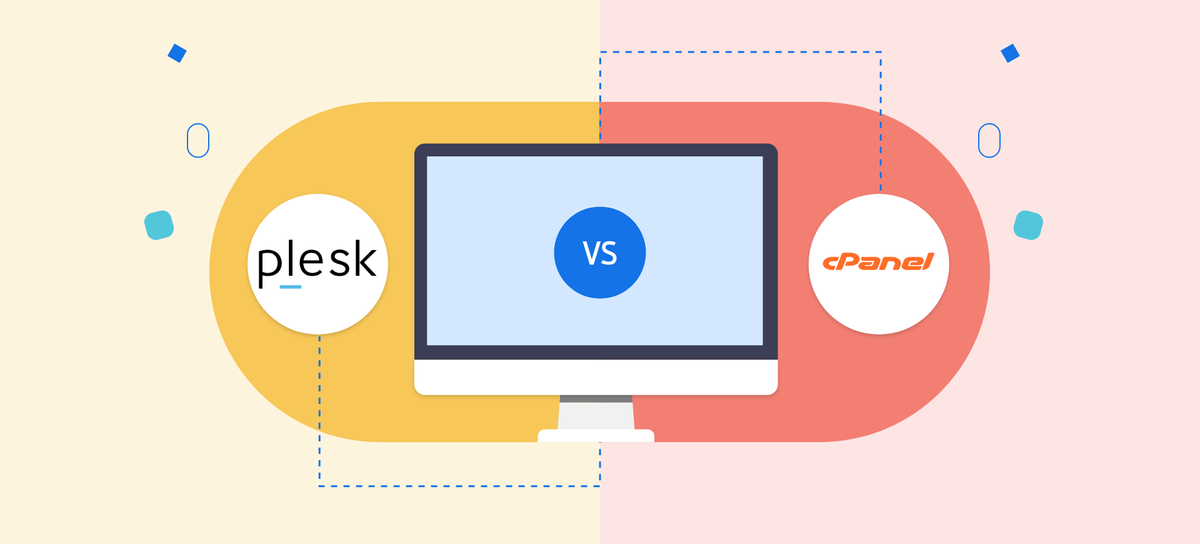When it comes to managing website hosting control panels, plesk and cPanel are the most popular choices. Both come with their characteristics and potential, like user interface, security, tools, etc.
When you are hosting through a virtual server, having the right control panel can have an impact on your hosting applications and their performance.
In this article, we will delve into the different ways Plesk VPS and cPanel VPS hosting impact your hosting applications.
What is Plesk VPS Hosting?
Plesk uses a web-based interface to manage your web servers. It provides various website managing tools and features like creating user accounts, creating emails, managing databases and domains, etc.
Plesk is a popular choice for VPS hosting, dedicated hosting, and shared hosting. VPS Plesk hosting offers extended OS support and WordPress automation features like WP toolkit, git, docker, etc. Additionally, it also offers the option of operating the servers through a mobile app.
What is cPanel VPS Hosting?
cPanel uses a graphical user interface to manage your web servers. It provides tools and features to manage your web servers like creating email accounts, integrating your web files, managing databases, security, domain, etc.
The graphical user interface makes various tasks easier, even for newbies, like restricting access to your account, modifying domain DNS records, creating and managing file transfer protocol (FTP) addresses, etc.
cPanel is designed to support Linux systems; this could be beneficial as Linux systems are popular in the server world.
What are the Key Differences Between Plesk VPS Hosting and VPS Hosting with cPanel?
| Aspects | Plesk VPS Hosting | cPanel VPS Hosting |
|
User Interface |
Uses an advanced, clean, and modern interface to manage servers.
Plesk is designed to support Linux and windows. Provides a mobile app to access and manage servers on the go. |
Uses a highly functional and traditional interface to manage servers.
cPanel is designed to support Linux systems. cPanel’s appearance can be customized. |
|
Features |
Prioritizes security and server management features.
Provides WordPress management through WordPress toolkit. Uses platforms like Docker, GitHub, etc for smooth integration. |
Prioritizes website and domain management features.
Uses web host manager (WHM) for server management and configuration. Users are allowed to purchase and install additional software according to their preferences. Provides an “EasyApache” tool that allows users to easily configure a web server. |
|
Security |
Provides powerful security features like fail2ban intrusion prevention, Plesk firewalls, and ModSecurity.
Additionally, users can buy and install ImunifyAV and Plesk premium antivirus to further enhance the security features. |
It provides various security features, such as HotLink Protection, secure socket shell (SSH) access, and IP Deny Manager.
Additionally, to ensure data encryption it also provides automatic SSL certificate installation and integrated ModSecurity. |
|
Costs |
It can be expensive as it provides advanced features and customization options.
If the user opts for advanced features like the wordpress toolkit, the cost of the plan will be higher. |
Cost-effective option for users with individual or small-scale accounts.
Provides a pricing model that is based on the account, meaning the cost is determined based on the number of accounts being hosted. |
To Wrap it Up?
If you are torn between Plesk VPS hosting and cPanel VPS hosting, your decision should be based on your server needs and preferences. Plesk VPS hosting is better suited for large-scale businesses as it offers advanced integration and features.
On the other hand, cPanel is better suited for individual users and small-scale businesses. It is known for its user-friendly interface and provides support for web applications.
This is why you must choose a web hosting control panel that is best suited and easier for you to use.

